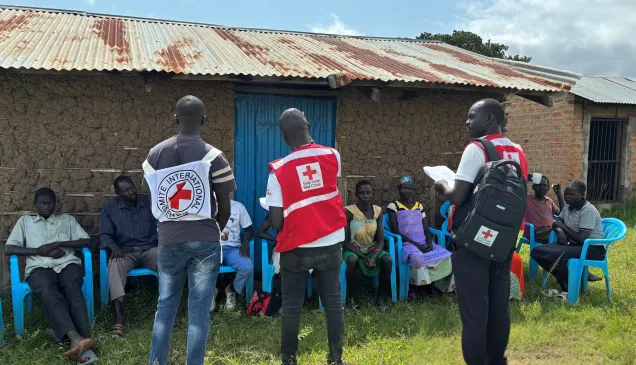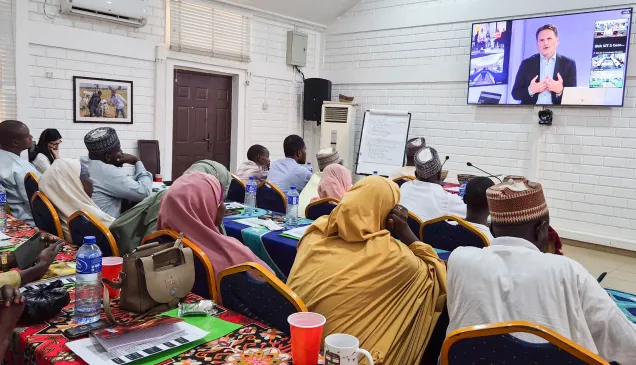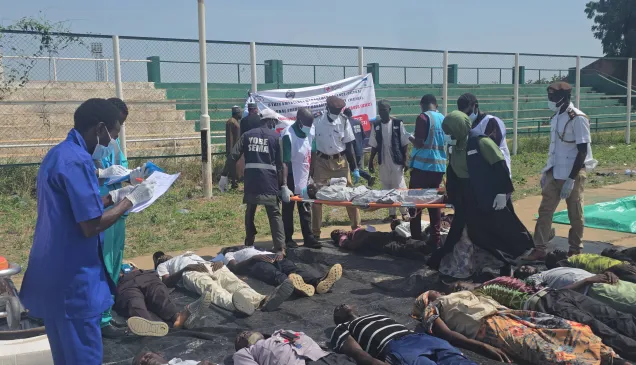In time for the 2021 rainy season, we supported over 3,000 people in Hong and Maiha in Northeast Nigeria with agricultural inputs and cash to increase their crop production. These included displaced people, returnees, widows and female-headed households. Across Nigeria in 2021, we supported 383,164 farmers. Our team recently visited the farmers in Maiha and Hong to see how well their farms did. Below are some photos and stories from the visit.
Nigeria: Displaced people supported to farm again
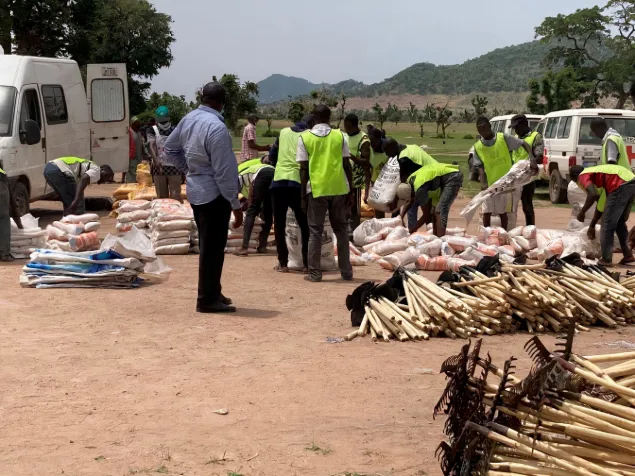
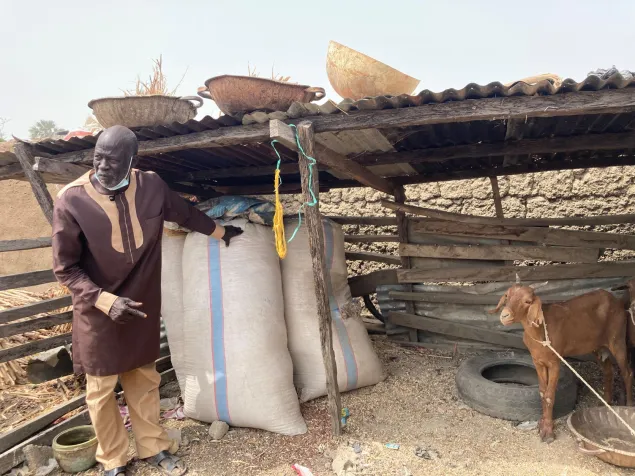
Mallam Adamu, a displaced farmer from Madagali is a volunteer teacher at the Mayoranio Primary school in Hong. He was a small scale farmer in his ancestral home in Kirshinga, Madagali. He fled the village with his family to Mayoranio when armed men attacked his village. Late last year, together with over 290 displaced people in Mayoranio, he was assisted with seeds and cash for fertilizer to enable him to take part in the planting season.
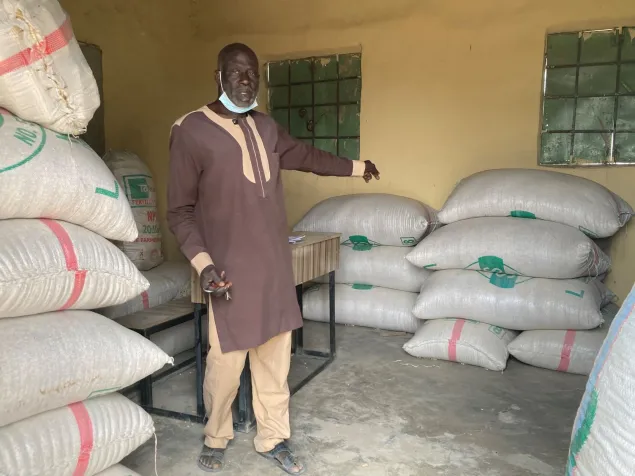
“I harvested 22 bags of Maize, six bags of beans and two bags of sorghum, the highest I have ever done in my over 15 years of farming. I owe these bountiful yields to the training ICRC gave us before the harvest, and the improved seeds and cash you assisted us with," Mallam Adamu said. He said he has also started a small livestock business from some of his profit.
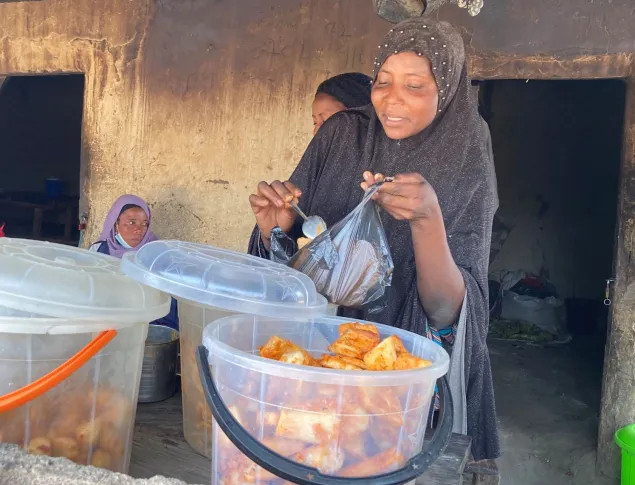
Maryam, a widow from Chibok, fled to settle in Mayoranio during the heat of the conflict to restart her life. She said that before now, the community leader and some good people in Mayoranio were assisting her and her four children with food and other daily needs. Now with the good harvest, she got from the seeds and cash assistance, she is able to take care of her family. She has even started a small business, frying yam.
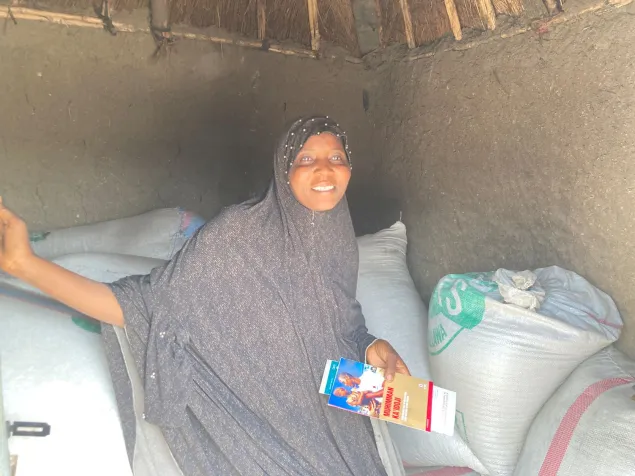
“I was able to secure a small piece of land to plant the cowpea, Maize and the Sorghum seeds with some cash for fertilizer given to me. My children and I now have enough to eat. I even sold a bag of maize and started a fried yam business in the neighbourhood which is also doing well. Life is better now." - Maryamu
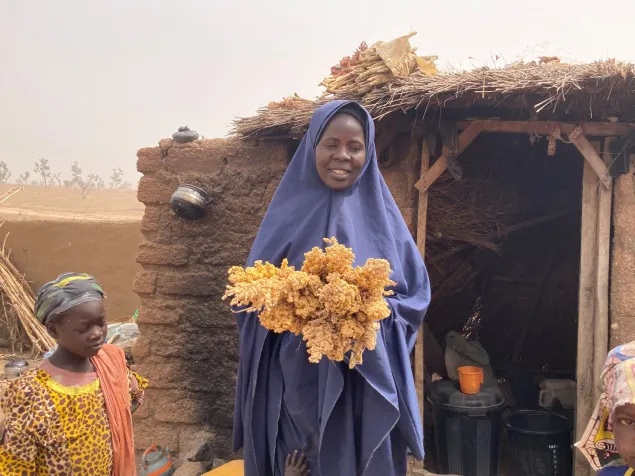
Originally from Gwoza but displaced to Koransa, Aisha and Zainabu (next photo) were neighbors in their ancestral home in Gwoza. Armed men attacked their homes in 2015 and killed both their husbands. While Aisha was lucky to escape with her two daughters. Zainabu was not so fortunate as her then 14-year-old son was abducted by the armed group and taken into the forest. Aisha and Zainab were among the over 600 people in Koransa who benefitted from the 2021 agro support, allowing them to farm.
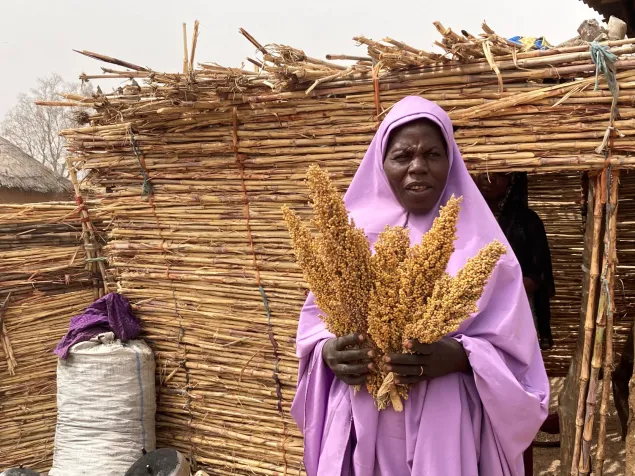
“As we couldn't get land on time, we started farming late. This affected our harvest, but the little we harvested will meet our needs. We also decided to preserve the seeds for the next planting season. We like it because the seeds grow faster and seem to yield better than our local seeds here.” – Zainab
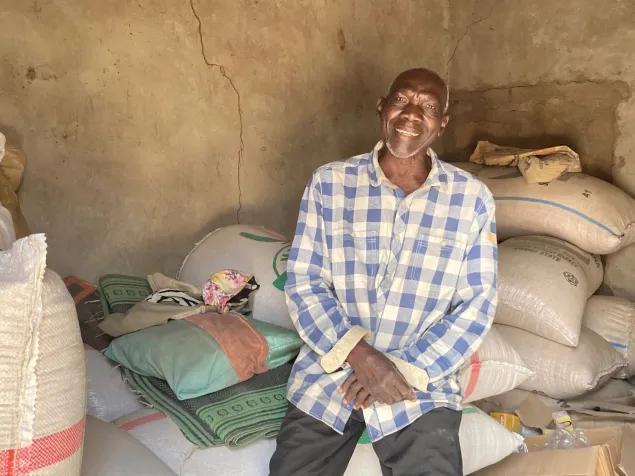
Mallam Hamza is a retired social worker from Garkida, Gombi local government area. Displaced by the conflict, he and his wife decided to find safety in Koransa where he was assisted last rainy season with agricultural inputs. He said, “Like other displaced persons here in Koransa, the training you gave us on new farming practices, especially on crop storage contributed to the bountiful yields you see behind me.”
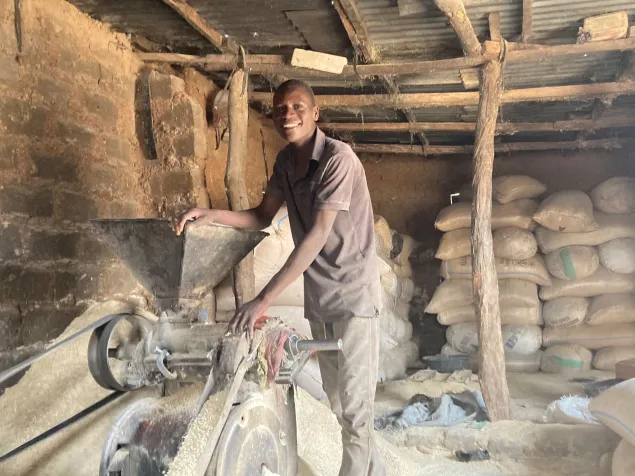
“The bountiful harvest our community Koransa experienced means more business for me as a miller. I work from dawn to dusk processing bags of sorghum, maize and millet for customers. I have benefitted a lot from the successes of the farmers,” Mohammad says. He was displaced from Chibok to Koransa where now works milling grains for customers.

